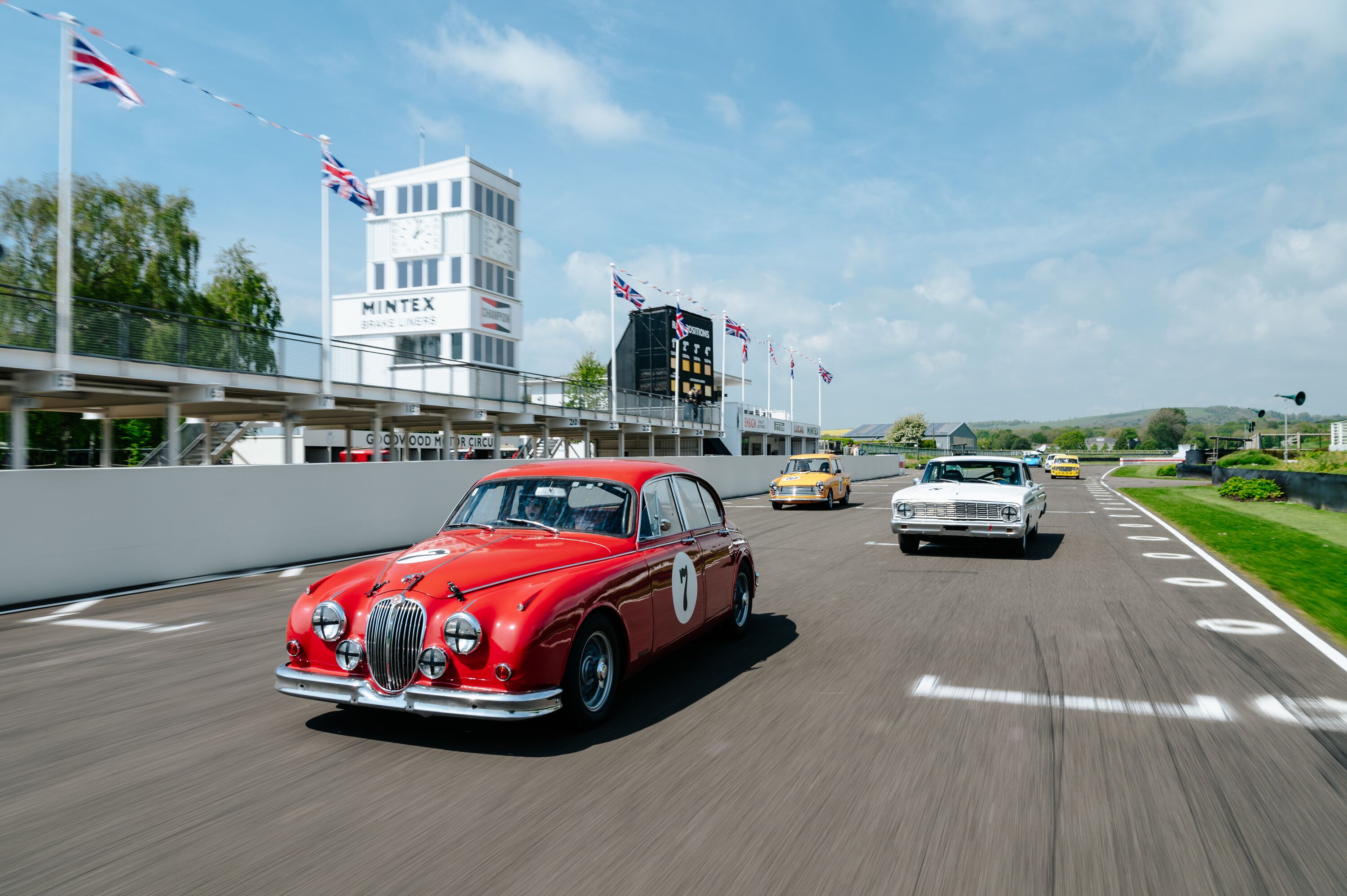The best convertibles of all time
It took a long time to get here, but the UK is finally approaching an unusual meteorological event, commonly known as ‘summer’. Yes, it's time to buy (or at least dream of) a convertible to whip through the countryside with the wind in your hair and the sun beating on your face. While some of the machines most definitely occupy the dream-car category, others are incredibly attainable, or at least will be once depreciation has done its magic. These are the best convertibles of all time.

Pagani Zonda HP Barchetta
While most of the entries on this list are cars one day we can all aspire to buy, what's the harm in featuring something that – barring Euro-millions wins, most of us will never own? In this spirit, we offer you the Pagani Zonda and not just any Zonda; the HP Barchetta was Horacio Pagani's 60th birthday present to himself and unmeasurably special as a result.
The HP Barchetta adds a teardrop-shaped passenger compartment and rear-wheel covers modelled on Group C racers to the purposeful styling of the, er, ' standard' Zonda. Performance is every bit as brutal as the wheel housings would suggest, thanks to a naturally aspirated 7.3-litre Mercedes AMG V12 that serves up just as much power as the twin-turbocharged motor in the Huayra. Just three HP Barchettas were built, so the chances of another one rolling up on you at the traffic light are vanishingly slight even in Monaco.

Mercedes SL R129
The R129 Mercedes-Benz SL might not be the usual driver-focused fare you might expect to read about in these pages, but it's hard to argue with as a piece of engineering. The SL was so innovative Mercedes filed 20 separate patents to protect its design. Highlights include its hydraulically operated roof – something of an eighth Wonder of the World back in 1989 – and its spring-loaded rollover hoop. It lay retracted until the car detected an unrecoverable roll when it would then shoot up from behind the back seats in three-tenths of a second. It wasn't just safe for a convertible; the SL’s crashworthiness was comparable to safe saloons of the time.
While not a driver's car per se, the R129 was loads more fun than the SLs that preceded it. The SL500 is the stalwart of the range with a bassy V8 soundtrack and performance to match the more powerful but heavier SL600. Having said that, the 600’s V12 is one of the most reliable engines Mercedes has ever made, which we'd believe because it would go on to produce huge horsepower for the Pagani Zonda.

Ferrari F50
Found marauding over the same dreamlands as the Zonda HP Barchetta, the Ferrari F50 is frightfully common by comparison, with 359 examples built. It won't feel like that from the driver's seat, though. It takes a lot to better an AMG V12, but a Ferrari V12 F1 engine modified for road use should do it. The F50 took its engine from 641 F1 car driven by Alain Prost and Nigel Mansel in 1990, increasing the capacity from 3.5 to 4.7 litres.
Its cultured bellowing scream has, to our ears, yet to be matched by any other road car, and its razor-sharp reactions make up for the fact that it lacks the turbocharged punch of the Ferrari F40 that the F50 wrongly lives in the shadow of. With a carbon tub and a gearbox that acts as a stressed chassis member, the F50 is the F1 car for the road it was always supposed to be, and undoubtedly one of the most exciting convertibles money can buy.

McLaren 12C Spyder
McLaren was already famed for building the pinnacle of supercars in the shape of Gordon Murray's F1, but the MP4 12C arguably had a bigger bearing on the supercar world by mass-producing the carbon fibre tub that was so key to the F1's success. The MP4 meant even the moderately well-off (relatively speaking) could enjoy the benefits of a lightweight and incredibly rigid chassis.
But its attributes are best sampled in a convertible model like McLaren's inaugural MP12 Syder. Even high-end convertibles suffer from scuttle and shake no matter how much chassis stiffening you throw at them, but that's not a problem with the MP12, which is just as rigid as the Coupé and barely any heavier. As a result, the MP12 was one of the first cars to bring the precise handling of a hardtop to a car that can drop its roof in seconds for a fully immersive driving experience.

Honda S2000
The Honda S2000 is the second car on this list that was a birthday present its maker gave themselves, although it's not Pagani Zonda levels of brilliance. But we digress; one of the beauties of losing the roof is that it flattens one of the barriers between your ears and the engine, and when the engine is as special as the Honda S2000's, that matters.
Like the classic S800, the S2000's engine revs to speeds that would make any other car's motor grenade. Its 9,000rpm limit is closer to a bike engine than something with four wheels. Losing the roof means you can hear the induction roar climb from a gurgling intake of breath to a frenetic howl as the needle spears into the red. Oddly light steering notwithstanding, the Honda is a fine sports car, and you can expect it to be just as reliable as the 'H' badge on its bonnet suggests.

AC Cobra
There's something charming about putting a vast V8 motor in a tiny British sports car. The Sunbeam Tiger could lay black stripes on the road in a way you'd never have guessed from its quaint packaging, and the formula was fine-tuned and improved by cars like the Marcus Mantis and numerous TVRs, but it's the AC Cobra that we need to thank for conceiving the idea.
Shoehorning a Ford V8 into the delicate body of an AC sports car produced a machine that accelerated so violently that Carl Shelby used to bet prospective owners couldn't grab a 100-dollar bill from the top of the dashboard under full acceleration. They couldn’t. As anyone who’s been to the Goodwood Revival can attest, this acceleration isn’t delivered Tesla-like with zero drama; the noise blows your eardrums, and with the pedal to the metal the Cobra’s nose lifts, the steering goes light and the car writhes like a snake in its death throes. But, as a unique convertible experience that feels like a fight for survival, nothing can match it.

MGB
For readers of a certain age, the MGB will likely release the same feelings of joy as the Mazda MX-5 does for younger readers – it's a gateway convertible designed to get you hooked on open-top driving. The Mazda MX-5 was based on the classic British sports car, and they don't get more classic than the B. It had the effortless good looks you want from a vehicle like this, and while performance is best described as nippy, skinny tyres make the MG loads of fun at legal speeds.
One of the MGB's perceived weak points, the unreliability of its period engineering, will also appeal to those who want to get their hands dirty fixing their car. You will find few cars that are easier to work on, and the MGB's popularity means that parts are readily available and cheap to buy. A car that can cover the entire gambit of ownership, from driving to researching, maintaining, and fixing, you will find few better.

Porsche Boxster
Back in the mid-1990s, Porsche was struggling to survive. Air-cooled 911s cost a fortune to build, were expensive to buy, and couldn't keep up with the water-cooled competition. Porsche needed an answer, and it was brilliant. Stuttgart upset the apple cart of loyal fans by bolting the front of the unreleased, water-cooled 996 911 to the back of a (much cheaper) mid-engined sports car we now know as the Porsche Boxster.
The result was a car that handled even better than its rear-engined big brother, so much so that Porsche had to restrict its performance – the original 986 Boxster S pegged back with a 3.2-litre flat-six, we can but wonder what it would have been like with the 3.6 from the 996 GT3. We don't need to wonder anymore however, because the Boxster now has full access to Porsche's motor department, with the Spyder RS coming fitted with the 4.0-litre flat-six from the 992 GT3, turning this brilliant sports car into one of the best performance cars on sale.

Mazda MX-5 ND
You could make a case for each of the four generations of Mazda MX-5. The NA is an all-time classic with pop-up headlights. The NB is much cheaper to buy, but drives like the NA, and the NC is easier to live with than both and very attainable.
However, the ND sticks doggedly to the original concept of a small, sharply-styled sports car with a soft and playful chassis and an LSD to amplify the fun. Its 2.0-litre engine gives the stock MX-5 the power it always needed, combined with a sparkly, rev-happy nature previously exclusive to the smaller 1.5 and 1.6-litre motors. Engineered with a laser focus on the original car, the MK4 MX5 offers the joy of open-top motoring to everyone and every budget.

Lotus Elan
When Gordon Murray set out to build the McLaren F1, what car do you reckon he benchmarked against? A race car for the road like the Ferrari F40, or perhaps the technical tsunami that was the Porsche 959? In fact, it was the humble Lotus Elan. In the end, Murray reckons his McLaren bettered the Lotus in terms of dynamic, handling, everyday usability and – shock – performance, but even he will admit his supercar can't match the Elan’s pure steering.
That tells you everything you need to know about the little Lotus. A car with a clean and crisp driving experience that's like a palate cleanser to the heavy and electronically interfered with cars of today. Weighing less than 700kg thanks to a backbone chassis and fibreglass body, and powered by a twin-cam 1.6-litre engine, Sprint versions of the Elan could out-accelerate a Lamborghini Miura – a staggering achievement for such a simple motor car.
road
news
list
Pagani
MG
Mercedes-Benz
McLaren
Mazda
lotus
honda
ferrari
AC
porsche
zonda
MG B
R129-SL
Spyder
MX-5
elan
S2000
F50
ac cobra
Boxster





